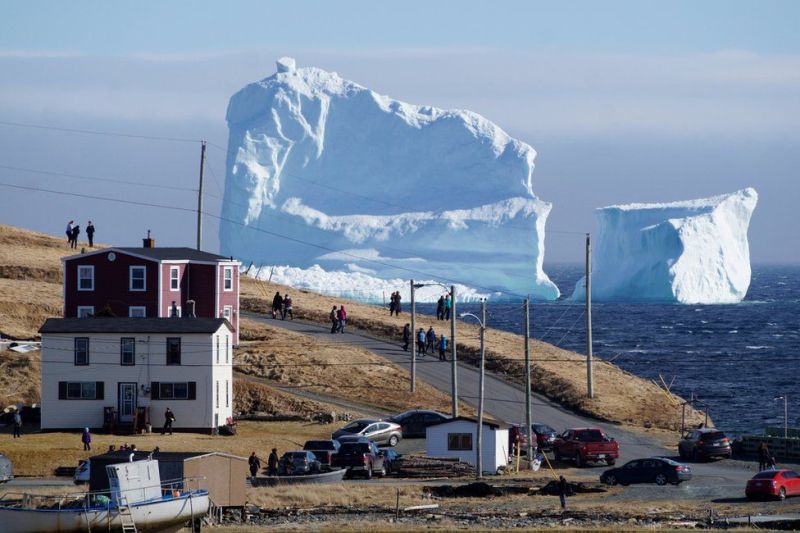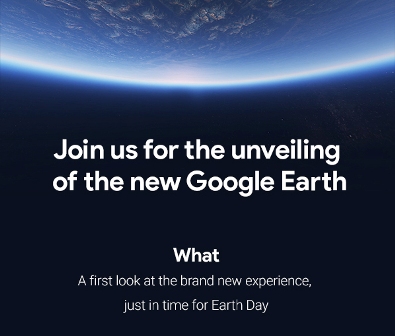Ecotourism: Difference between revisions
Siterunner (talk | contribs) |
Siterunner (talk | contribs) No edit summary |
||
| Line 1: | Line 1: | ||
[[File:Floating floating over the ocean seas.jpg]] | |||
Among the many definitions of "ecotourism / eco-tourism" are the more 'strict' definitions (see Wikipedia definition below) and more 'loosely labeled' definitions of what constitutes ecologically aware tourism, e.g. ocean cruises to see the Arctic and Antarctic changes in the environment due to climate change (see above example in Newfoundland, Canada). | |||
In the near future, 'virtual ecotourism' will enter the lexicon, as virtual reality capabilities added to programs like Google Earth enable 3D / immersive touring via headsets and data libraries gathered from locations as diverse as the biospheres within rainforest canopies, to ocean kelp forests, to astronaut perspectives who speak of an "Overview Effect" taking in the overwhelming cognitive experience of floating [https://www.greenpolicy360.net/w/File:Google_Earth_VR_-_2017.jpg above the Home Planet Earth]. | |||
[[File:Google Earth invite-just in time for Earth Day.jpg]] | |||
○ | |||
https://en.wikipedia.org/wiki/Ecotourism | https://en.wikipedia.org/wiki/Ecotourism | ||
According to the definition and principles of ecotourism established by The International Ecotourism Society (TIES) in 1990, ecotourism is "Responsible travel to natural areas that conserves the environment and improves the well-being of local people." (TIES, 1990). Martha Honey, expands on the TIES definition by describing the seven characteristics of ecotourism, which are: | ''According to the definition and principles of ecotourism established by The International Ecotourism Society (TIES) in 1990, ecotourism is "Responsible travel to natural areas that conserves the environment and improves the well-being of local people." (TIES, 1990). Martha Honey, expands on the TIES definition by describing the seven characteristics of ecotourism, which are:'' | ||
Involves travel to natural destinations | :Involves travel to natural destinations | ||
Minimizes impact | :Minimizes impact | ||
Builds environmental awareness | :Builds environmental awareness | ||
Provides direct financial benefits for conservation | :Provides direct financial benefits for conservation | ||
Provides financial benefits and empowerment for local people | :Provides financial benefits and empowerment for local people | ||
Respects local culture | :Respects local culture | ||
Supports human rights and democratic movements such as: | :Supports human rights and democratic movements such as: | ||
*conservation of biological diversity and cultural diversity through ecosystem protection | *conservation of biological diversity and cultural diversity through ecosystem protection | ||
| Line 30: | Line 47: | ||
In this way we believed visitors' awareness would more fully carry on with them in their home communities and policies and funding would begin to preserve the unique and critically important flora and fauna comprising one of the richest biospheres on Earth. | In this way we believed visitors' awareness would more fully carry on with them in their home communities and policies and funding would begin to preserve the unique and critically important flora and fauna comprising one of the richest biospheres on Earth. | ||
http://www.greenpolicy360.net/w/Category: | ● http://www.greenpolicy360.net/w/Rainforest_Canopy_Don_Perry | ||
:● https://www.greenpolicy360.net/w/Category:Virtual_Reality | |||
https://en.wikipedia.org/wiki/Ecotourism_in_Costa_Rica | ● http://www.greenpolicy360.net/w/Category:Rain_Forest | ||
:● https://en.wikipedia.org/wiki/Ecotourism_in_Costa_Rica | |||
==See also== | |||
<big>[[PlanetCitizen]]</big> | |||
*[[Biodiversity]] | *[[Biodiversity]] | ||
| Line 60: | Line 81: | ||
*[[Natural capital]] | *[[Natural capital]] | ||
*[[Look at how thin our atmosphere is]] | |||
*[[Natural resources]] | *[[Natural resources]] | ||
*[[Nature]] | *[[Nature]] | ||
*[[Planet Citizens, Planet Scientists]] | |||
*[[Renewable resources]] | *[[Renewable resources]] | ||
Revision as of 16:20, 19 April 2017
Among the many definitions of "ecotourism / eco-tourism" are the more 'strict' definitions (see Wikipedia definition below) and more 'loosely labeled' definitions of what constitutes ecologically aware tourism, e.g. ocean cruises to see the Arctic and Antarctic changes in the environment due to climate change (see above example in Newfoundland, Canada).
In the near future, 'virtual ecotourism' will enter the lexicon, as virtual reality capabilities added to programs like Google Earth enable 3D / immersive touring via headsets and data libraries gathered from locations as diverse as the biospheres within rainforest canopies, to ocean kelp forests, to astronaut perspectives who speak of an "Overview Effect" taking in the overwhelming cognitive experience of floating above the Home Planet Earth.
○
https://en.wikipedia.org/wiki/Ecotourism
According to the definition and principles of ecotourism established by The International Ecotourism Society (TIES) in 1990, ecotourism is "Responsible travel to natural areas that conserves the environment and improves the well-being of local people." (TIES, 1990). Martha Honey, expands on the TIES definition by describing the seven characteristics of ecotourism, which are:
- Involves travel to natural destinations
- Minimizes impact
- Builds environmental awareness
- Provides direct financial benefits for conservation
- Provides financial benefits and empowerment for local people
- Respects local culture
- Supports human rights and democratic movements such as:
- conservation of biological diversity and cultural diversity through ecosystem protection
- promotion of sustainable use of biodiversity, by providing jobs to local populations
- sharing of all socio-economic benefits with local communities and indigenous peoples by having their informed consent and participation in the management of *ecotourism enterprises
- tourism to unspoiled natural resources, with minimal impact on the environment being a primary concern.
- minimization of tourism's own environmental impact
- affordability and lack of waste in the form of luxury
- local culture, flora and fauna being the main attractions
- local people benefit from this form of tourism economically
○ ○ ○ ○ ○ ○ ○ ○ ○ ○ ○ ○ ○ ○ ○ ○ ○ ○ ○ ○ ○ ○ ○ ○ ○ ○ ○ ○ ○ ○
SJS: The Costa Rica rainforest canopy web project of Don Perry beginning in the 1980's was one of the first planned ecotourism projects.
One of the key goals was to open up to 'the world' a direct experience of the rainforest canopy, which previously was inaccessible in its unrivaled biodiversity and beauty.
In this way we believed visitors' awareness would more fully carry on with them in their home communities and policies and funding would begin to preserve the unique and critically important flora and fauna comprising one of the richest biospheres on Earth.
● http://www.greenpolicy360.net/w/Rainforest_Canopy_Don_Perry
● http://www.greenpolicy360.net/w/Category:Rain_Forest
See also

